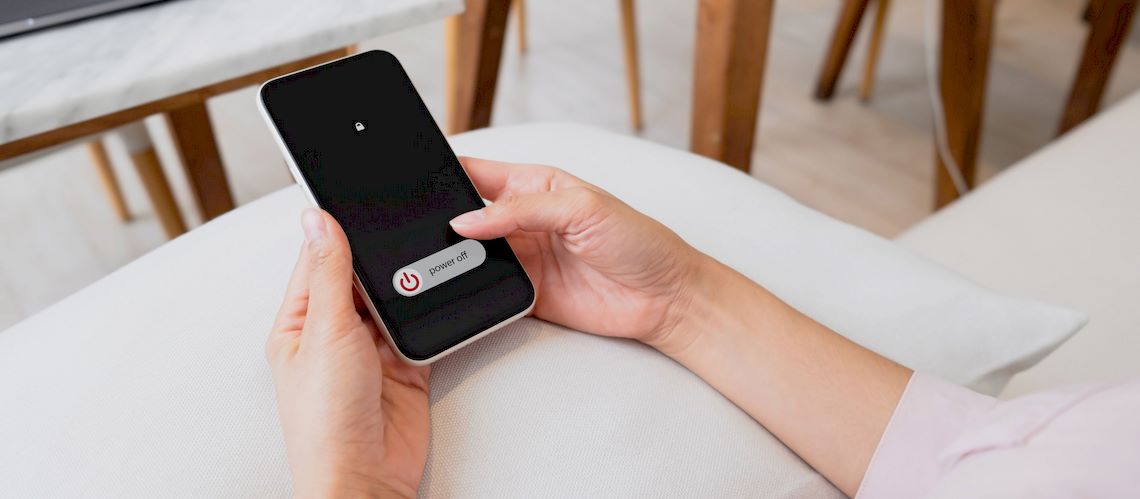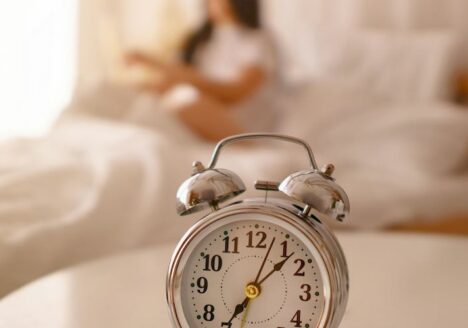In our hyper-connected world, the pervasive use of digital devices has become a significant factor influencing our health and well-being. Managing blue light exposure and implementing digital curfews are essential strategies within the CORE Compass framework, helping to enhance Operational and Physical Vitality, foster Curiosity and Cognitive Growth, promote Resilience and Emotional Equilibrium, and nurture Spiritual Harmony. This article explores how digital curfews can be integrated into your daily routine to optimize well-being across these core aspects of life, backed by authoritative research.
Application in CORE Compass
- Operational and Physical Vitality
Digital curfews play a crucial role in maintaining Operational and Physical Vitality by promoting better sleep quality, which is foundational to physical health and energy levels. Research has shown that reducing evening screen time minimizes blue light exposure, leading to improved melatonin production and better sleep (Chang et al., 2015). Consistent, high-quality sleep enhances physical vitality, supports immune function, and reduces the risk of chronic conditions, such as obesity and cardiovascular disease (Figueiro et al., 2011). - Curiosity and Cognitive Growth
Curiosity and Cognitive Growth are nurtured when the mind is well-rested and alert. Implementing a digital curfew can improve cognitive function by ensuring that sleep is undisturbed by the effects of blue light and stress from late-night device use. Studies indicate that individuals who limit screen time before bed experience better focus, memory retention, and overall cognitive performance, which are essential for learning and mental growth (Exelmans & Van den Bulck, 2016). - Resilience and Emotional Equilibrium
Resilience and Emotional Equilibrium are enhanced when stress levels are managed effectively. Continuous use of digital devices, particularly before bedtime, can increase stress hormone levels, such as cortisol, which disrupts sleep and contributes to anxiety and mood disorders (Thomée et al., 2011). By establishing a digital curfew, you can reduce evening stress, promote relaxation, and maintain a balanced emotional state, which is critical for resilience in facing daily challenges. - Spiritual Harmony
Spiritual Harmony involves creating space for mindfulness and reflection, free from the distractions of digital devices. Digital curfews help in nurturing this aspect by allowing time for evening rituals that foster spiritual growth, such as meditation, journaling, or quiet reflection. Disconnecting from technology in the evening can deepen your connection with yourself and your spiritual practices, leading to greater inner peace and balance.
Benefits within CORE Compass:
- Enhanced physical health and vitality through better sleep quality
- Improved cognitive function and focus, supporting curiosity and mental growth
- Balanced emotional state and reduced stress, promoting resilience
- Greater spiritual mindfulness and inner peace, nurturing spiritual harmony
How to Integrate Digital Curfews in CORE Compass
- Assess Your Needs
Identify which aspects of the CORE Compass—Operational and Physical Vitality, Cognitive Growth, Emotional Equilibrium, or Spiritual Harmony—are most relevant to your current goals. This will guide how you implement digital curfews in your daily routine. - Set a Digital Curfew
Decide on a specific time each evening to stop using electronic devices. Ideally, this should be at least one hour before bedtime to allow your body and mind to wind down naturally. - Use Blue Light Filters
Install blue light filters on your devices or use blue light blocking glasses during the evening to minimize exposure and protect your circadian rhythms. - Create a Mindful Evening Routine
Replace screen time with activities that support your goals within the CORE Compass framework. For example, engage in meditation or light reading to promote Spiritual Harmony, or review your day’s learning to enhance Cognitive Growth. - Monitor and Adjust
Track your sleep patterns and overall well-being to evaluate the effectiveness of your digital curfew. Make adjustments as needed to ensure that this practice continues to support your goals across the CORE Compass.
Scientific Evidence
Extensive research underscores the benefits of managing blue light exposure and limiting evening technology use. For instance, Gooley et al. (2011) found that exposure to room light before bedtime suppresses melatonin onset, leading to poorer sleep quality. Chang et al. (2015) demonstrated that using light-emitting devices in the evening disrupts sleep and circadian rhythms, negatively affecting next-day alertness. Moreover, research by Thomée et al. (2011) linked frequent mobile phone use with increased stress and sleep disturbances, highlighting the importance of digital curfews for maintaining mental and emotional health.
Conclusion
Integrating digital curfews into your daily routine is a powerful strategy within the CORE Compass framework for enhancing well-being across multiple dimensions. By managing blue light exposure and reducing evening screen time, you can improve sleep quality, reduce stress, and support better physical, mental, and emotional health. This practice also fosters spiritual mindfulness, helping you maintain balance and achieve your goals across all aspects of life.
References
- Chang, A. M., Aeschbach, D., Duffy, J. F., & Czeisler, C. A. (2015). Evening use of light-emitting eReaders negatively affects sleep, circadian timing, and next-morning alertness. Proceedings of the National Academy of Sciences, 112(4), 1232-1237.
- Exelmans, L., & Van den Bulck, J. (2016). Bedtime mobile phone use and sleep in adults. Social Science & Medicine, 148, 93-101.
- Figueiro, M. G., Wood, B., Plitnick, B., & Rea, M. S. (2011). The impact of light from computer monitors on melatonin levels in college students. Neuro Endocrinology Letters, 32(2), 158-163.
- Gooley, J. J., Chamberlain, K., Smith, K. A., Khalsa, S. B., Rajaratnam, S. M., Van Reen, E., … & Lockley, S. W. (2011). Exposure to room light before bedtime suppresses melatonin onset and shortens melatonin duration in humans. The Journal of Clinical Endocrinology & Metabolism, 96(3), E463-E472.
- Thomée, S., Härenstam, A., & Hagberg, M. (2011). Mobile phone use and stress, sleep disturbances, and symptoms of depression among young adults – A prospective cohort study. BMC Public Health, 11, 66.
- Twenge, J. M., Krizan, Z., & Hisler, G. (2018). Associations between screen time and sleep duration are primarily driven by portable electronic devices: Evidence from a population-based study of US children and adolescents. Sleep Medicine, 47, 42-49.




